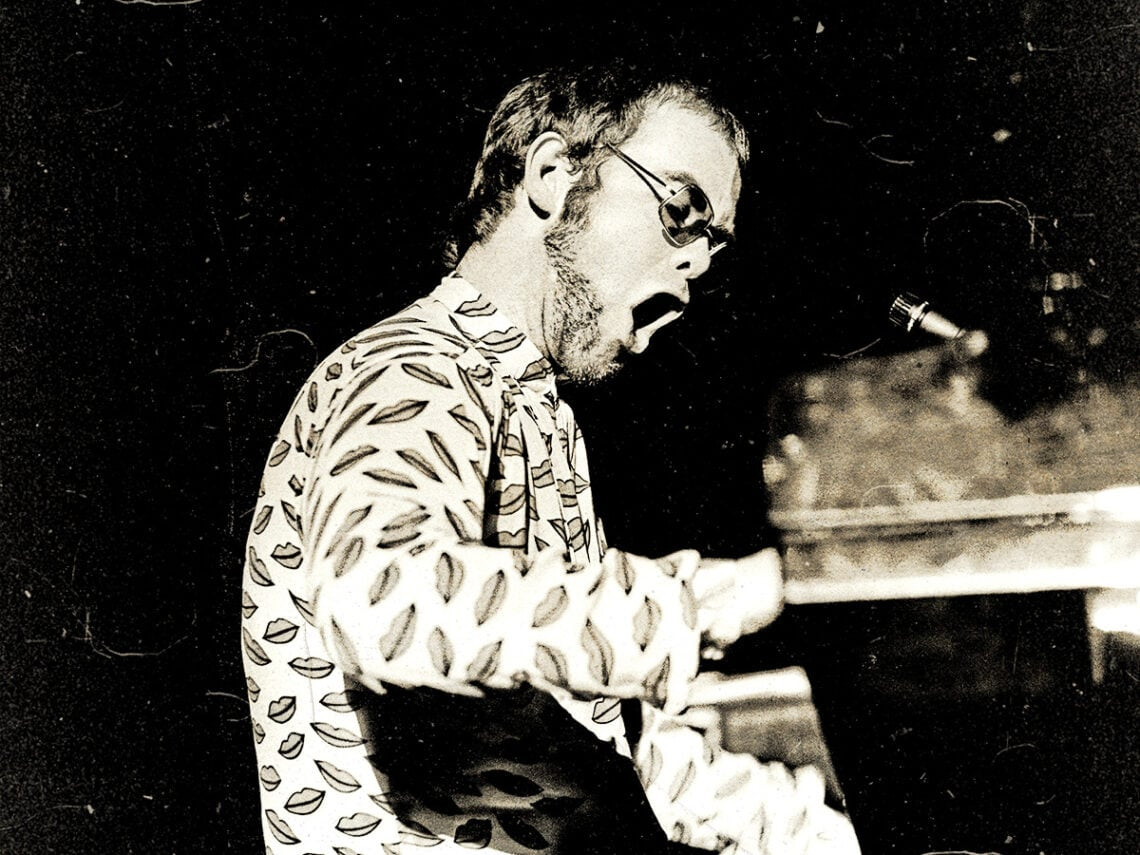Elton John, a name synonymous with piano-driven rock anthems and poignant ballads, has crafted a musical legacy spanning decades. From “Candle in the Wind” to “Goodbye Yellow Brick Road,” his collaborations with lyricist Bernie Taupin have produced some of the most enduring songs in pop history. However, within his vast catalog, there lies a particular track that evokes a complex sentiment from the Rocket Man himself: “Crocodile Rock.” While a chart-topping sensation and a crowd-pleaser, “Crocodile Rock” occupies a unique, and somewhat begrudging, place in Elton John’s heart.
 Elton John in 1970, early in his career
Elton John in 1970, early in his career
Before reaching global stardom, Elton John honed his skills in local pubs, playing covers and absorbing the popular music of the time. This early experience shaped his musical foundation, leading him to a pivotal meeting with Bernie Taupin. Their songwriting partnership blossomed, resulting in a string of hits throughout the 1970s. Albums released during this era consistently delivered classics, each capturing a different facet of the human experience, from the isolation of “Rocket Man” to the romanticism of “Tiny Dancer.” Amidst this golden run, “Crocodile Rock” emerged from the sessions for the album Don’t Shoot Me I’m Only the Piano Player, but its creation and subsequent reception became a source of amusement and slight exasperation for John.
In a candid conversation on the Deeney Talks podcast, Elton John revealed his perspective on “Crocodile Rock,” stating, “The last time I have to sing ‘Crocodile Rock’ I will probably throw a party. It was written as a kind of a joke, like a pastiche.” This revelation unveils the song’s origin as a lighthearted experiment, a deliberate nod to the rock and roll era that preceded the British Invasion. Growing up immersed in the pre-Beatles rock scene, John’s rendition of a classic rock and roll single was intentionally upbeat and reminiscent of the girl groups popular at the time. The catchy “la-la-la” breaks, while infectious, might also hint at the song’s playful nature, even making it a fitting tune for a performance with The Muppets, as he famously did.
Despite his somewhat dismissive attitude towards “Crocodile Rock,” Elton John acknowledges its undeniable popularity and enduring appeal to audiences. He has consistently included it in his live performances, recognizing his role as an entertainer. “It became a big hit, and people love to sing along with it. So who am I to say, ‘I am not going to play it’, because I play to amuse and entertain people.” This quote highlights the dichotomy of his feelings: personal reservations about the song’s artistic merit versus his commitment to delivering a memorable show for his fans. However, he has also expressed a desire to retire the song from his setlist after his farewell tour concludes, suggesting a genuine weariness of performing it.
Even during the height of “Crocodile Rock”‘s popularity, Elton John was already pushing creative boundaries and seeking new musical territories. His ambitious double album Goodbye Yellow Brick Road, released shortly after Don’t Shoot Me I’m Only the Piano Player, showcased his artistic evolution and willingness to explore diverse sounds and themes. From the introspective “Love Lies Bleeding” to the raucous energy of “Saturday Night’s Alright for Fighting,” the album demonstrated a significant leap beyond the simpler rock and roll pastiche of “Crocodile Rock.”
Interestingly, even with a career filled with arguably more sophisticated and impactful songs released after his 70s heyday, “Crocodile Rock” has remained a staple in Elton John’s recent farewell tour setlists. This enduring presence underscores a crucial aspect of a musician’s relationship with their work: once a song is released, it takes on a life of its own, belonging as much to the listeners as to the artist. While Elton John may view “Crocodile Rock” with a mixture of amusement and fatigue, its continued popularity and sing-along appeal ensures its place in his performances, a testament to the unpredictable journey of a song from its creator to the hearts of the public.

